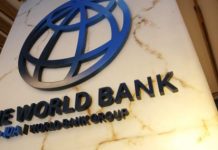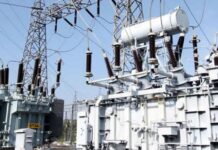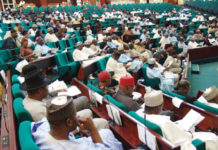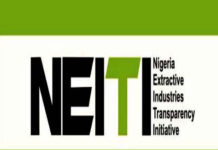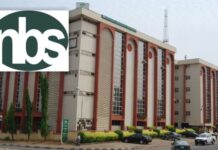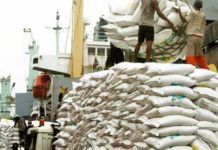 As every actor knows, it is easy to be typecast. The picture being made of Sanusi Lamido Sanusi, after one year in office as the Governor of the Central Bank of Nigeria is that of a man who is in a hurry to make history.
As every actor knows, it is easy to be typecast. The picture being made of Sanusi Lamido Sanusi, after one year in office as the Governor of the Central Bank of Nigeria is that of a man who is in a hurry to make history.
When Sanusi Lamido Sanusi was appointed Governor of Central Bank of Nigeria (CBN) in June 2009, not a few persons expected a fundamental shift in style and substance in the apex bank. However, quite a few if any must have predicted the actual bent and reach of his were-to-come reforms.
Sanusi was confronted with a choice: continue to nostril-feed some troubled banks and hope that they would make the bend as his predecessor Professor Chukwuma Soludo had done or throw up new direction to address the problems on the ground.
But the lanky Kano-born banker cum economist, who had resigned his new appointment as the chief of Nigeria ‘s premier bank (First Bank of Nigeria Plc), to take up the CBN job, chose the latter.
On August 14, 2009, just a little over two months in CBN saddle, he bared his fangs. The CBN in a move that shocked many Nigerians announced the removal of chief executives of Intercontinental Bank, Oceanic, Union and First Inland banks, replacing them with CBN-appointed managements. A month later four more banks were added to the troubled list, namely Bank PHB, Spring Bank, Equatorial Trust Bank (ETB) and WEMA. ETB, a private bank was initially taken over by the apex from the owners on allegations of huge exposure of the chairman to the bank, but it was later restored to him.
For many weeks and months, he and his new reforms remained topical issues. In typical Nigerian fashion, many applauded, but many were aghast as to the brazenness of the action, coming in the thick of a horrendous global economic situation.
True, the financial industry was facing challenges, courtesy of the global financial crisis, but nobody was quite sure how bad the situation was. So nobody really expected such a hefty step forward.
The impact was swift and spontaneous.
Sanusi appears to hinge the strength of his reforms on bare-it all-as-it-is posture, which insists that all the inner strengths and weaknesses of each of the financial institutions are made stark bare.
Many observers, however, believe that some of the critics are mis-reading Sanusi’s reforms which they argue have brought about stability in the system.
Sanusi himself said public office is something that is always open to criticism. As a public officer one must always know that. He said the mandate of central bank is monetary and financial responsibility which the bank has continued to deliver on them.
To some extent one may agreed that the reforms have brought about moderation in inflation and reduced volatility in money market rate.
In the midst of the cacophony of critics and supporters of his reform, Sanusi declared that: "The banking system that was on the verge of collapse is now stable; we have repaired the banks’ balance sheet.
"The question we ask ourselves for everything we have done, the steps we have taken aimed at improving governance and fighting corruption, eliminating criminal behaviour, improving risk management, enhancing disclosure and transparency, are they in line with our mandate of establishing stability or not? That is the relevant question."
The limitation of the tenure of bank chief executives no doubt received almost universal applause, except for the implementation modalities. It is generally believed among perceptible analysts that the fiduciary responsibilities of bankers are supremely undermined whenever bank chiefs overstay, as there might be the tendency for them to equate their personal interests with those of the bank.
Another measure of the bank which has received high marks is the recent passage of the bill for the establishment of an Asset Management Corporation of Nigeria (AMCON) by the CBN. The passage of this bill was unsuccessfully sought by the former management of the apex bank. It is to Sanusi’s credit that the bill has received the endorsement of the both chambers of the National Assembly.
This company, experts believe, will help to manage the toxic loans in the financial system. Though it will obviously lead to diminution of assets values, it will bring about leaner and fitter banks thereby giving them another fighting chance to survive.
These and many other issues are the focus of the Economic Confidential in this edition. We array a series of features on topical themes on the Audit Reports that nailed some of the banks; Cases for and Against the Reform; Corporate Governance and Bank Failures in Nigeria; The Effects of Sanusi’s Bailout Fund; the Four Pillars of the Reform, The legal Basis of Some Actions; AMCON as an Elixir and so on. You can
We strongly believe our readers will find some of those features informative and educative on the CBN under Sanusi in first year. Our other regulars: Personality Profile, News, Facts and Figures among other features are also in this edition.
To read some of the articles, click MONETARY PAGE
Chijama Ogbu
Managing Editor
